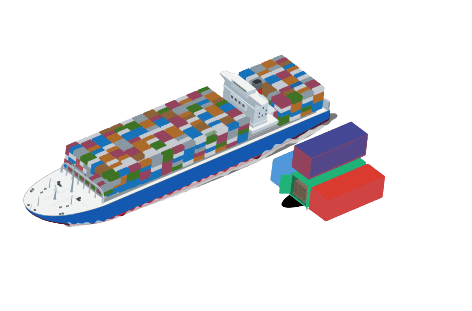In this article we will address the topic of data intelligence, so that we can show our reader how data analysis can be efficient and assertive, through the help of platforms and tools that offer information, in real time, so that managers make the most punctual and correct decisions possible.
Therefore, we will conceptualize data analysis and its strategic potential for Brazilian logistics, as well as what are the types of analysis that help in the work of entrepreneurs and what impacts the main tools bring to the effectiveness of the business business.
In addition to all this, to close with a golden key, we will show the importance of technology and its benefits so that you start your transformation now in the management of your company’s information.
Were you curious and want to know everything? Continue reading the article until the end. Check!
What is data analysis?
Currently, the digital age is already a reality for companies in any segment, which can generate more opportunities and still develop business management in the international market, regardless of its size.
Therefore, data intelligence is an active practice in everyday business, because the analysis of these same data is carried out to carry out the efficient management of the business, so that the foreign trade entrepreneur can make his decision with strategy, based on real information.
The work of data analysis is nothing more than the deepening of the information collected in the main sources of the companies, through management platforms, automation tools, spreadsheets, e-mails, among other sources that will bring a rich and very useful material.
In this sense, data intelligence is the compilation of a raw and unstructured material that guarantees a good amount of technical information that can be worked by various perspectives and with the support of the latest technology.
Data intelligence as a strategy potential in logistics
Despite all the optimism found in the Brazilian logistics market, with the use of cutting-edge technology, there are still companies that suffer difficulties to find the necessary solutions to do what they need and improve their potential of data intelligence in the daily operations.
That is, the adoption of technological applications is fundamental to enhance the analytical capacity of international logistics entrepreneurs in Brazil, with practices in intelligent solutions that help in accessing a considerable database and that makes the correct location for decisions in negotiations, with greater assertiveness and in a timely manner.
What types of data analysis are there?
The ways of working the analysis of data intelligence are distinct and each one has its proposal to framethe information with greater specificity. They are:
- descriptive, focused on a dynamic and current focus of the company;
- predictive, focused on predicting information about how something or what situation will behave;
- prescriptive, focused on projection and focused on decision making;
- diagnostic, aimed at understanding how some events were developed.
What to say about data intelligence in Brazilian logistics?
When it comes to national logistics, we can see optimism for companies in the industry, with a gain in economic recovery, after the negative impacts caused by the pandemic.
Still, some challenges are encountered, such as a lot of pressure forfaster deliveries to distribution centers or the end customer, as well as pressure for adequacy in green logistics. To this end, data intelligence has many resources and solutions to offer to Brazilian logistics, which can automate and optimize many logistics processes.
In addition, provide pertinent information about marked trends and problems that may occur, in a way that improves efficiency and reduces costs for companies. However, the deployment of state-of-the-art technology requires a good financial investment and a skilled team, to ensure its correct use and maintain the effectiveness of the systems.
What are the impacts of data analytics for businesses?
We affirm that all impacts are positive, because data analysis will allow the understanding of each action performed, so that the decision made is based on the effectiveness of the strategy that data intelligence provides, which results in improved training in the management of international business.
Some of these benefits are:
- visualize the current market momentum;
- understand the wishes of customers;
- analyze the results continuously;
- have better insights and opportunities.
5 Best Data Analysis Tools
With this deeper dive of companies into digital transformation, data intelligence becomes a key asset to improve decision making, with the great challenge in developing relevant information that brings effective results, coming from different data sources.
Below, we will list some tools to perform this analysis at all levels:
- Excel;
- Python;
- Sas;
- Power BI;
- quicksight
How to perform efficient data analysis?
A productive and effective data analysis depends on good planning, with parameters that are simple to perform and that will influence the outcome of the work. They are:
- definition of the objectives of the analysis;
- carrying out the planning to treat the information;
- creation of indicators for the business;
- use of tools for support.
What is the importance of technology in companies and its benefits?
Faced with an increasingly competitive international market, with the obligation to offer the product or service with higher quality, foreign trade companies are forced to invest much more in innovation technology, to contribute to the increasingly better work in their processes.
Because technology is important to optimize the management of international business, as well as to provide information that will develop better solutions for consumers and employees of companies.
In the meantime, data intelligence brings benefits to automate production processes, which are:
- improved productivity;
- cost reduction;
- greater team alignment.

